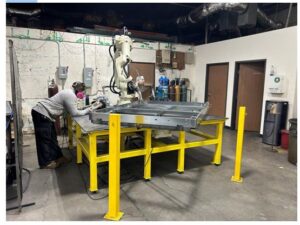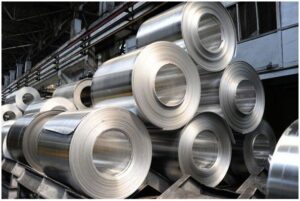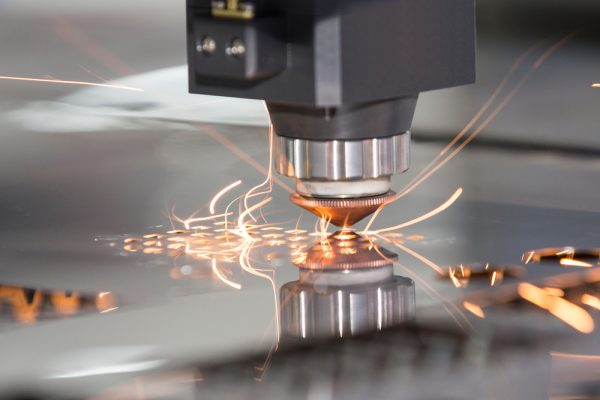The Role of Professional Manufacturers in Aluminum Car Parts Fabrication
The automotive sector is a prodigy of contemporary engineering. It is always changing to satisfy the requirements of sustainability, durability, and efficacy. The use of lightweight materials, such as aluminum, which is now an important component in the production of automobiles, is at the center of this evolution. Professional manufacturers are essential to ensure the quality, accuracy, and creativity required for the creation of aluminum automobile parts. The significance of aluminum fabrication within automotive field will be examined in this blog.

Why Aluminum? The Metal of Choice for Automotive Applications
Aluminum has become preferable among automakers for several reasons:
- Lightweight: As aluminum is substantially lighter than other metals, especially steel, vehicles weigh less and use less gasoline.
- Corrosion Resistance: Its natural oxide layer protects it from rust, increasing longevity.
- High Strength-to-Weight Ratio: Aluminum assures longevity without compromising performance by infusing strength and a lightweight design.
- Recyclability: Aluminum can be reused or recycled repeatedly without losing its qualities, leading to environmental objectives.
Due to these qualities, aluminum is essential for auto components such as body panels, wheels, gearbox housings and engine blocks.
The Expertise of Professional Manufacturers
High-performance automotive parts are made from raw aluminum using sophisticated technology and specialized knowledge. Professional manufacturers contribute knowledge, creativity, and appropriateness to each step of the process of custom aluminum fabrication.
- Material Selection and Procurement
Expert manufacturers are aware that aluminum alloys differ from one another. To ensure optimum performance, they choose particular grades according to the part’s intended application. For example:
- Aluminum 6061 is often used for structural applications due to its strength and corrosion resistance.
- Aluminum 7075 is chosen for its exceptional strength, making it suitable for high-stress components.
- Advanced Fabrication Techniques
Cutting-edge techniques are utilized in modern aluminum fabrication to satisfy the exacting conditions of vehicle design. Some key techniques include:
- Die Casting: used to produce engine housings and parts in large numbers while maintaining accuracy and consistency.
- Extrusion: Used for creating lightweight yet robust structural elements.
- CNC Machining: Offers unparalleled accuracy, vital for parts requiring tight tolerances.
- Sheet Metal Forming: Ideal for body panels and intricate shapes.
Skilled fabricators can apply these methods effectively, reducing waste and guaranteeing quality.
- Design and Engineering Support
Aluminum parts for automobiles must adhere to stringent safety and performance requirements. Automakers and manufacturers collaborate closely to:
- Conduct feasibility studies for new designs.
- Optimize parts for weight reduction without sacrificing strength.
- Test prototypes under real-world conditions.
Their collaborative and cooperative approach ensures the final product meets or exceeds expectations.
- Quality Control and Assurance
To guarantee that every component satisfies industry requirements, professional manufacturers make significant investments in quality assurance procedures. Techniques include:
- Non-Destructive Testing (NDT): Detects flaws without damaging the component.
- Dimensional Inspections: Verifies the accuracy of every dimension.
- Metallurgical Analysis: Confirms the material’s integrity and properties.
These rigorous checks prevent defects and ensure the parts perform reliably in vehicles.
- Sustainability Practices
Professional manufacturers are implementing greener processes as environmental restrictions become more stringent. By employing energy-efficient procedures and recycled aluminum they help to lessen the carbon footprint of the automobile sector.
The Importance of Partnering with Professional Manufacturers
Choosing a professional manufacturer for aluminum car parts fabrication offers several benefits:
- Consistency and Precision: Their advanced technology ensures consistent quality across large production volumes.
- Cost Efficiency: Experienced manufacturers optimize processes to minimize material waste and production costs.
- Compliance with Standards: They ensure all parts meet global automotive industry standards for safety and performance.
- Innovation: Experts are leading the way in implementing emerging technologies like AI-driven design optimization and additive manufacturing.

Cresco: A Trusted Partner in Aluminum Fabrication
Cresco is aware of the limitations involved in fabricating aluminum automobile parts. Our team of professionals offers solutions that surpass industry standards by fusing cutting-edge technology with years of experience. Cresco is your trust-worthy partner in bringing automotive innovations to life, whether you’re searching for precision machining, sophisticated casting, or custom metal fabrication.
FAQs: Aluminum Car Parts Fabrication
- Why is aluminum preferred over steel for car parts?
Because aluminum is lighter than steel, it performs better and uses less fuel. Additionally, it is long-lasting, recyclable, and resistant to corrosion, which makes it a perfect option for environmentally friendly car design.
- What types of car parts are commonly made from aluminum?
Engine blocks, wheels, gearbox housings, body panels and suspension sections are examples of common aluminum automobile parts. Because of its adaptability, it can be used for both structural and decorative purposes.
- How do professional manufacturers ensure the quality of aluminum parts?
To guarantee that every component satisfies strict industry standards, professional manufacturers employ sophisticated manufacturing techniques, exacting quality control procedures, and non-destructive testing.
- Can aluminum car parts be recycled?
Aluminum is indeed very recyclable. Recycled aluminum is frequently used in production processes by skilled manufacturers, which lowers production costs and promotes environmental sustainability.
Automakers may fully depend on using aluminum to produce vehicles that are effective, long-lasting, and ecologically friendly by collaborating with skilled fabricators. Putting your trust in skilled fabrication assures the best quality for the automotive challenges of today and tomorrow.


